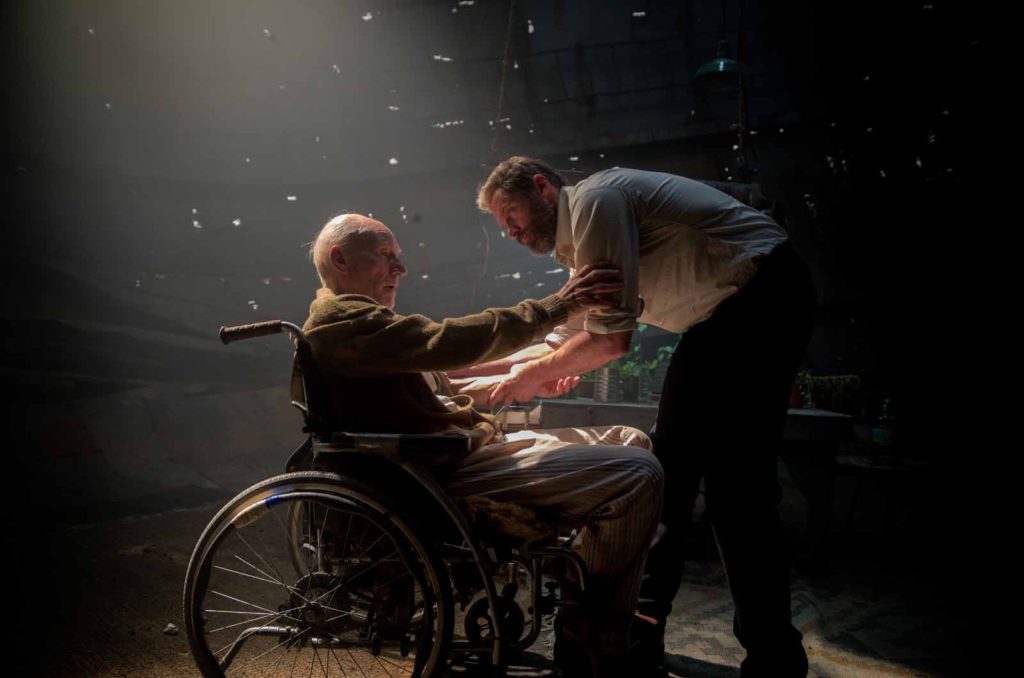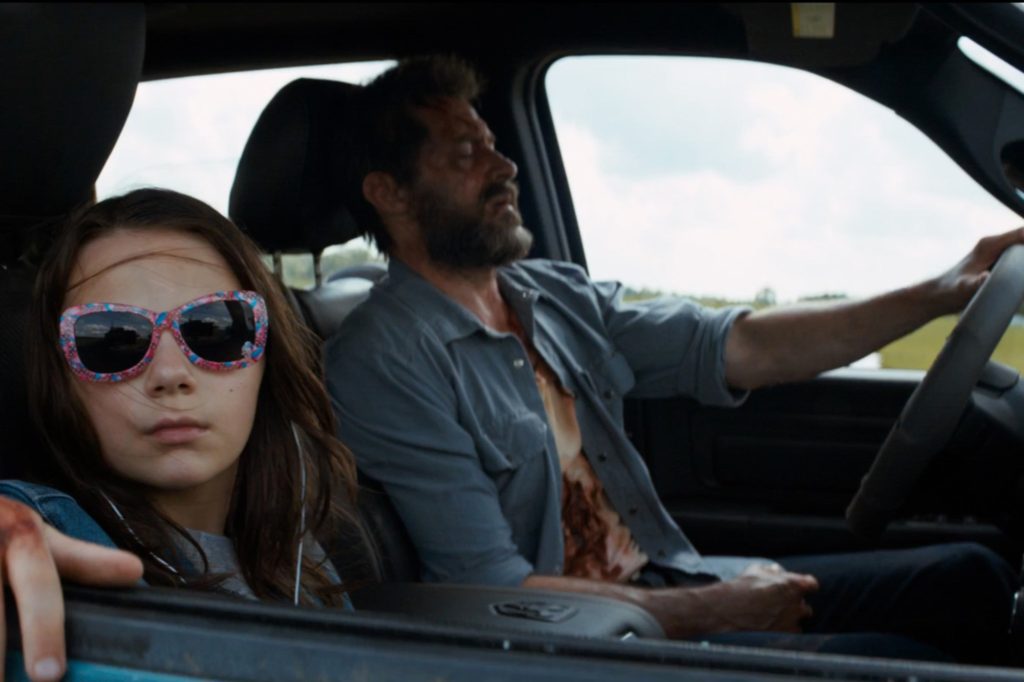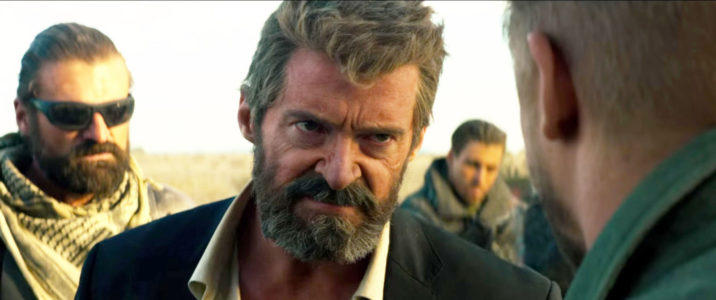The greatest challenge facing the modern superhero film is that of attaining a sense of idiosyncrasy in an industry which demands commensurate mundanity. That would go some way toward explaining why something like Deadpool broke out like gangbusters; for many, that film posited a refreshingly anarchic rejection of the practically convoluted continuity consonant with it’s big-budget contemporaries while nevertheless indulging in the tropes it proclaimed to be skewering. This relationship between subversion and tradition is also present, albeit to a less exaggerated degree, in Logan, the final film to feature Hugh Jackman in the role that made him a star.
The audience is immediately thrust into a scenario dependent on events that have happened both in and beyond the preceding films in the X-Men series. Our eponymous antihero, riddled with a cough and limp that has done little to diffuse his fury, finds himself driving a limo across the Mexican border for affluent pleasure-seekers. But the country has been seemingly eradicated of mutants, with only Logan, Professor Xavier and one other cohort (a nearly unrecognizable Stephen Merchant) remaining. Indeed, the film is most effective in portraying the death knell of Logan and his kind by contrasting it with the sheer indifference of the rest of the world. Existential angst is not uncommon in these films, but rarely has it felt more potent than in scenes with a senile Xavier repeating asinine commercial slogans and weeping at the deterioration of his powerful mind. Indeed, the film is less nostalgic than it is toying with the notions of myths not only in the Superhero genre, but in the Western as well.

This duality doesn’t become immediately apparent when the initial machinations of the plot are set into motion with Logan being roped into smuggling a young girl named Laura (Dafne Keen) to North Dakota. But the revelation of her being a mutant, in conjunction with her possession of faded X-Men comic books, exposes the tenacious persistence of the past, or at the very least a particular perspective of history through popular culture. It doesn’t take anyone familiar with the Hollywood Westerns of the 20th century long to draw parallels between the plot of this film and that of Shane, even before the 1953 George Stevens classic appears on a television in a hotel room (“I saw this film around the time I was your age,” Xavier tells Laura). Director James Mangold, whose forays in both genres in his prior work (The Wolverine from 2013 and his remake of 3:10 to Yuma from 2007) coalesce here, is not interested in subtlety but in prompting the astute viewer to recognize the value which lore, particularly in the mediums of cinema and comic books, have in measuring social progress. “The world is a different place,” Logan curtly tells Xavier, but one of the wellsprings of tragedy in the film is the lack of a paradigmatic social shift in the lifetime of both veteran mutants.

If there is a shortcoming to Mangold’s approach, and a significant one at that, it is the way he is beholden to the dramatic beats of his forebears. Anyone unfamiliar with either genre Mangold pays homage to may not be entirely privy to the way he subverts their conventions. The most successful fusion of these seemingly disparate genres is an extended sequence where our heroes are put up for the night by a grateful, salt-of-the-earth family forced to contend with an updated version of cattle barons. The fate of all these characters provides the film it’s boldest statement on sociopolitical repression, though to expound on those reasons may risk ruining the pleasure of watching Mangold at his most assured. Unfortunately, those well-versed in work extending from the aforementioned Western to Children of Men may be disappointed in how the film resorts to well-worn tropes with less inspired audacity, particularly in the climax. And these notes of familiarity do little to explicate some of the more obfuscated portions of the saga which ultimately, for me at least, detracted from it’s emotional impact.
Nevertheless, for a film whose ambitions extend beyond mere formal exercise, Logan proves to be a galvanizing end to the tale of Wolverine. Mangold and his fully capable cast approach the final outing for a beloved superhero, at least for this generation, with an understanding of how cultural signifiers can and do serve as proponents of solidarity for those living on the fringes of society. This has never mattered more than in times when a significant portion of the hegemony attempts to perpetuate a narrative where there is no such need for resistance.
